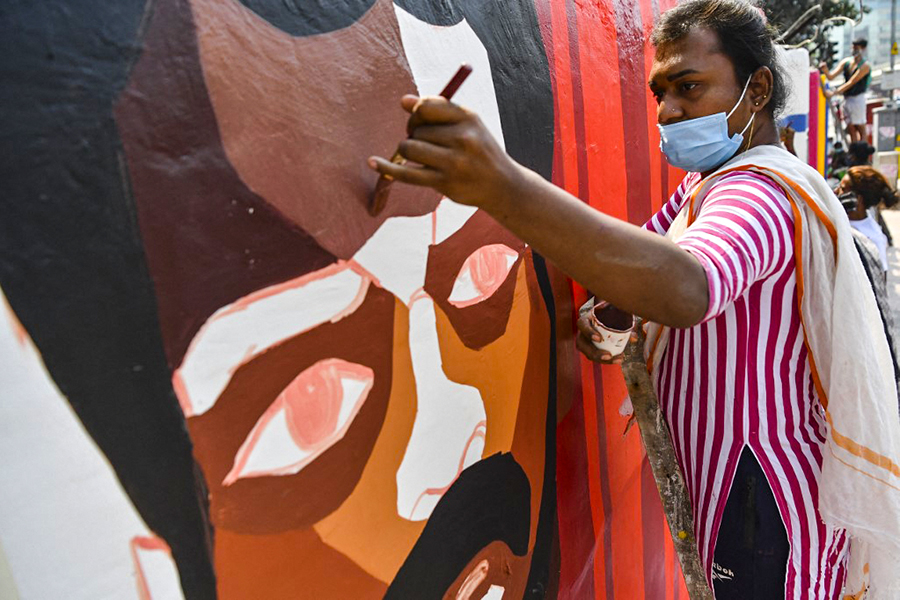Discrimination and exclusion faced by transgender and gender-variant persons is heightened in the public avenues such as roads, parks, public transport and toilets, where many trans persons engage in forms of begging and sex work. These avenues have been historically unsafe, while also being crucial for survival for many trans persons. I look at the legal regulations pertaining to trans persons, with a focus on sex work.
Sex work is a major source of livelihood for many trans persons in the country and this is particularly high among the hijra community. There are many challenges to unregulated sex work. Sex workers often do not have control over their working conditions, rates, hours or place, and have limited decision-making in use of condoms. Thus, they are highly vulnerable to sexually transmitted diseases and AIDS. This vulnerability is to such an extent that the Ministry of Health considers transgender persons as ‘at risk’ and permanently bars them from blood donation. Lastly, sex workers often face abuse and harassment from police, goons and pimps.

There are two things to consider when we come to the issue of trans sex workers. First, the visibility of transness and gender non-conformity in self-expressions of whoever cannot or does not choose to ‘pass’[1], marks them as easy prey for harassment. Second, many transgender persons end up leaving abusive homes and families who are not accepting of them – unlike other cisgender queer persons. Thus, trans persons, especially from the poorer socio-economic backgrounds, due to the lack of support of their families and social networks are more vulnerable to violence compared to female sex workers and other queer groups in public places.
In NALSA v. Union of India, 2014, the Supreme Court noted that “non-recognition of the identity of hijras/transgender persons denies them equal protection of law, thereby leaving them extremely vulnerable to harassment, violence and sexual assault in public spaces…”. While the Transgender (Protection of Rights) Act, 2019 (“Trans Act”) was enacted following the NALSA judgment, it provides little protection against such harassment in public spaces. It does not recognise livelihoods such as sex work or provide particular protection in public spaces. Most importantly, the Act only punishes sexual, physical or other abuse of a transgender person with imprisonment of six months to two years. As noted above, abuse faced by trans sex workers can be worse than female sex workers. Compared to Section 376 of the Indian Penal Code, which deals with sexual abuse of a ciswoman and punishes the accused with rigorous imprisonment of at least ten years to life and a fine, the provisions under the Trans Act are starkly discriminatory and violative of the Constitutional right to equality of trans persons.
Apart from the Trans Act, there are other laws that are used to harass and arrest trans persons in public spaces. The Telangana Eunuch Act, 1919 borrows definitions and provisions from the repealed Criminal Tribes Act, 1871. Both Acts from colonial times, classify ‘eunuchs’ as habitual criminals, who by virtue of their birth, were seen as predisposed to committing petty offences and under Section 4 of the Act, police and state authorities are often found arresting transgender persons in cases where they are found singing or dancing or cross-dressing in public spaces. The said legislation has been stayed by the Telangana High Court in a petition challenging the constitutionality of this legislation.
Lastly, the enforcement of Immoral Traffic Prevention Act (ITPA), 1956, is primarily seen as targeting voluntary sex work. Amended in 1986 to cover non-female sex workers, the Act is now a tool of harassment for trans sex workers as well.
In the case of trans persons in India, neither the legal provisions nor the law enforcement agencies succeed in protecting them in public spaces and otherwise. Many fighting for trans rights believe that emphasising on the means of livelihood of trans persons and affirmative action is crucial to their integration in the mainstream social order and for all of these demands, the right to be safe in public spaces in non-negotiable.
[1] Pfeffer, C. A. (2014). “I Don’t Like Passing as a Straight Woman”: Queer Negotiations of Identity and Social Group Membership. American Journal of Sociology, 120(1), 1–44.

